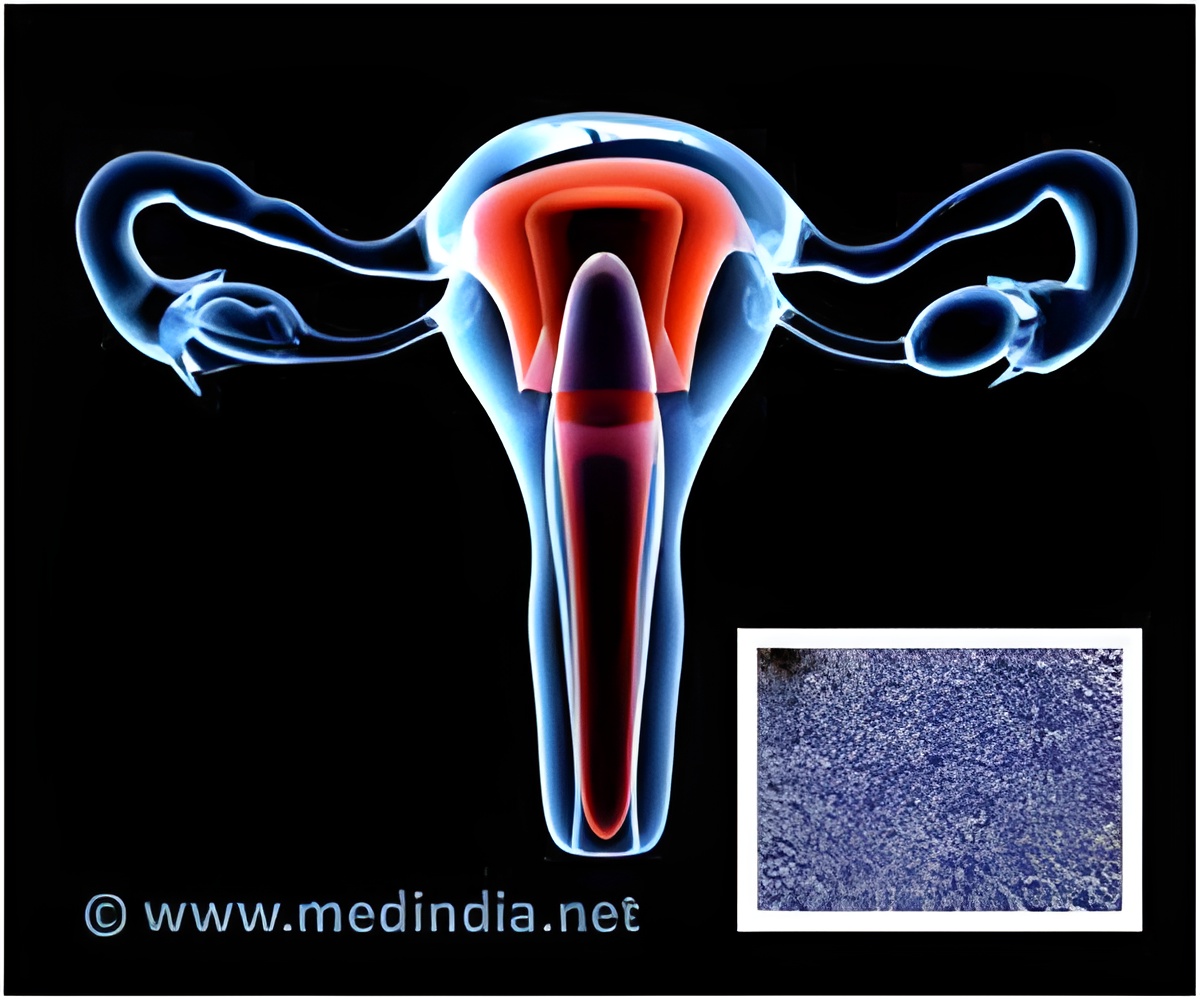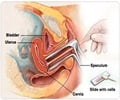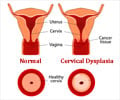A DNA-based test can be effective in identifying women with potentially or mildly abnormal cervical smear who are at a high risk of having precursors of cervical cancer.

Cervical smear ("Pap") tests are carried out to identify women who might be at high risk of developing cervical cancer. Cells collected in the smear test are examined under the microscope. If abnormalities are seen, a patient may be asked to undergo further tests to determine whether the abnormalities are serious and whether treatment of pre-cancer is required to prevent cancer developing. Sometimes the cells examined from the smear are not clearly normal or abnormal (referred to with the acronym 'ASCUS' or 'borderline nuclear changes'), whereas other types of cells identified are only mildly abnormal (referred to as 'LSIL' or mild dyskaryosis). The main cause of cervical cancer is the human papillomavirus, although only a small number of women who carry the virus go on to develop cervical cancer. The Hybrid Capture 2 (HC2) assay is a DNA-based method that tests for DNA from those strains of the virus that are higher risk for cervical cancer.
The authors compared the HC2 test with a repeat conventional smear test as a way of prioritising possible cases that have cervical pre- cancer. They reviewed 39 studies involving a total of 13,196 women. Compared to a repeat smear, the HC2 test more accurately identified women with pre- cancer.
"Based on these findings, the HC2 test can be recommended as a way of triaging women with an ASCUS smear," said lead researcher, Marc Arbyn of the Unit of Cancer Epidemiology at the Scientific Institute of Public Health in Brussels, Belgium.
However, the HC2 test over-called the risk of pre-cancer in women with LSIL abnormalities and the researchers conclude that more specific tests are needed to triage women with LSIL. "The use of the HC2 test in women with LSIL abnormalities in their smear test results should be carefully considered," said Arbyn. "It may be more accurate in older women with these abnormalities, but it is important to take into account the local cost of further, more invasive tests and to avoid unnecessary referrals and anxiety."
Advertisement














